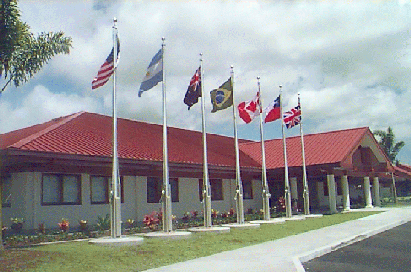One immediate natural outcome of the UK’s withdrawal from Gemini is that until/unless another partner is found, the existing partners will likely divide up the UK’s share and the USA, now a 50% partner in Gemini, will become a clear majority stakeholder with over 60% of Gemini time. At that point, Gemini essentially becomes a US institution with some international partners for added flavor. This situation would certainly give the US community something it wants and needs: more 8m-class telescope time and more control of Gemini’s instruments and plans, but I think it ultimately misses out on the incredible opportunity that is Gemini.
There are numerous advantages to keeping Gemini a truly international endeavor:
1) value for the money increases as we leverage off a greater partnership
2) we increase the pool of available knowledge, skills, and innovation contributing to the observatory
3) we set a path for even larger more expensive collaborations to follow and learn from
These are all pretty obvious advantages, but there’s another: we bring people from diverse communities together. Gemini unites the world through astronomy, or at least its small corner of it. This unification happens on social, political, economic, technological, and of course scientific fronts. Gemini’s partnership is based on agreements at the highest levels of government for all its partners. We continue to reach out to our fellow mountain-top neighbors as well, in efforts to increase exchange time and collaborations – particularly with our Japanese neighbors at Subaru. What a great example astronomy(and Gemini) can set for other collaborative efforts in the future. Gemini is an important trend-setter in international astronomy collaborations.
With the US as a majority shareholder, it’s not obvious to me that the other current partners will want to remain and grow with Gemini. Without any real voice in how Gemini operates, I would certainly start looking elsewhere for collaborations where I could have a stronger voice if I were one of the minority partners. The future of the partnership itself is threatened by having a single majority stakeholder.
A telescope and its suite of instruments are ultimately only as good as the people who use them. The goal of any observatory time allocation committee is to help ensure the best science gets done on the telescope. The larger the community of scientists, the larger pool of talent from which to obtain the best science. And yes competition, even between countries within a partnership, can also help promote the best science and the best instruments.
Ultimately, though, it also comes down to money. US astronomy has not been good at getting national-level funding large enough to build the largest telescopes that compete on the international frontier. On the other hand, the US has been better than any other country in the world at getting private funding for large telescopes and that is an important strength for the US community, but ultimately, these resources go to the privileged universities or small consortia which operate them – and not to the general national community, creating a system of astronomy haves and have nots. In order to keep the US community strength of having both a large public and private set of facilities, we must keep the public funding coming and since the US obviously couldn’t get enough money to build Gemini by itself, why should people think there’ll be more money for future large projects? The non-privileged US community needs an international partnership, ironically, in order to stay competitive at the world level -and to keep astronomy from becoming the domain of the wealthy universities only.
That an international facility not only solves the financial problem, but brings along other benefits in terms of more potential for better science, better instruments, better use of shared experiences, and an example of uniting multiple countries in a joint mission, is simply the icing on the cake. Now, realizing this potential is a lot easier said than done, but that’s the challenge we face, and probably fodder for a future post.
Scot loves to travel and experience different cultures and environments, trying to get a sense of what it’s like to live in each place he visits, not just pass through as a been-there, seen-that tourist. Perhaps this is another reason he wishes to keep Gemini international – more international trips!

